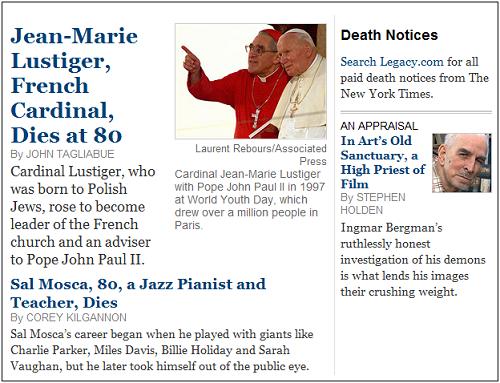All Souls' Day
at the Still Point
From remarks on Denis Donoghue's Speaking of Beauty in the New York Review of Books, issue dated Nov. 20, 2003, page 48:
"The Russian theorist Bakhtin lends his august authority to what Donoghue's lively conversation has been saying, or implying, all along. 'Beauty does not know itself; it cannot found and validate itself — it simply is.' "
From The Bakhtin Circle:
"Goethe's imagination was fundamentally chronotopic, he visualised time in space:
Time and space merge … into an inseparable unity … a definite and absolutely concrete locality serves at the starting point for the creative imagination… this is a piece of human history, historical time condensed into space….
Dostoevskii… sought to present the voices of his era in a 'pure simultaneity' unrivalled since Dante. In contradistinction to that of Goethe this chronotope was one of visualising relations in terms of space not time and this leads to a philosophical bent that is distinctly messianic:
Only such things as can conceivably be linked at a single point in time are essential and are incorporated into Dostoevskii's world; such things can be carried over into eternity, for in eternity, according to Dostoevskii, all is simultaneous, everything coexists…. "
Bakhtin's notion of a "chronotope" was rather poorly defined. For a geometric structure that might well be called by this name, see Poetry's Bones and Time Fold. For a similar, but somewhat simpler, structure, see Balanchine's Birthday.
From Four Quartets:
"At the still point, there the dance is."
From an essay by William H. Gass on Malcolm Lowry's classic novel Under the Volcano:
"There is no o'clock in a cantina."
 .
.







